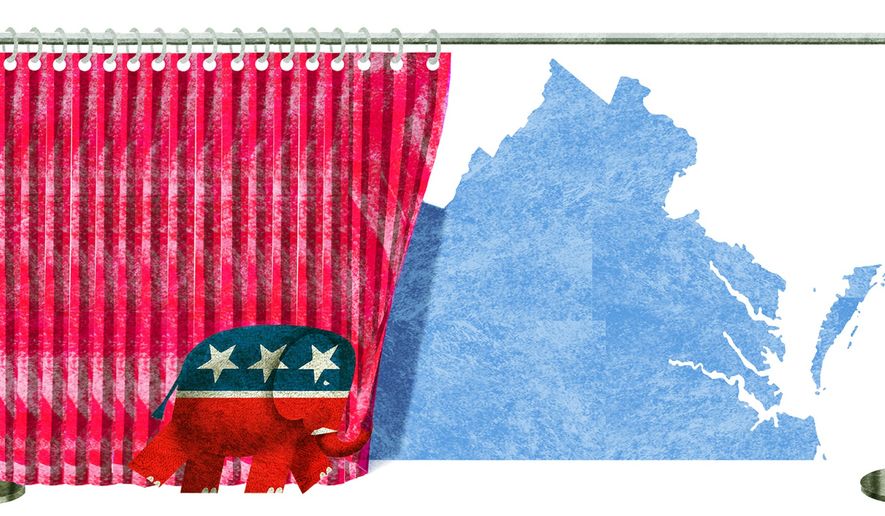OPINION:
Expectations are what demoralize people.
In the recent legislative elections in Virginia, expectations were pretty high. Gov. Glenn Youngkin — tall, affable, rich — has injected some optimism into a Republican Party in Virginia that has been scuffling for some time now. President Biden won the commonwealth by 10 points in 2020. After narrowly escaping a challenge by Ed Gillespie in 2014, Democratic Sen. Mark Warner won reelection in 2020 by 12 points.
Even Sen. Tim Kaine, who looks suspiciously like a used-car salesman from Buffalo but in reality is a used public policy salesman from Missouri — and who was former Secretary of State Hillary Clinton’s running mate in 2016 — managed to win reelection in 2018 by 15 points.
In short, Virginia is a blue state and has been for at least a decade, so expectations should have been modest.
The reality is that Republicans in Virginia performed better in the 2023 legislative elections than in the 2021 legislative elections. They won in all the districts that Mr. Biden won by less than 9 percentage points in 2020. The races the Republicans lost this month were entirely in districts that had been gerrymandered by the Democrats in 2020, and they won the close races — the narrowest margin among Democratic winners was 3.6 points.
With respect to gerrymandering, Dee Duncan, president of the Republican State Leadership Committee, noted that in districts Republicans lost, they outperformed their 2020 results by 11 points.
One quick example is worth noting. State Sen. Siobhan Dunnavant in Henrico County — a mother, an OB-GYN, and a very good person and representative — was the target of gerrymandering that added about 17,000 Democratic voters to her district. She lost by 7,000 votes.
Democrats received about 1.190 million total votes in the state Senate races. Republicans received about 1.178 million votes in those races. The House races were similar. Democrats received about 1.15 million total votes in those races; Republicans received about 1.13 million. Had 4,000 or so votes been optimized for Republicans, they would control both chambers.
All that may seem small comfort, but slow and steady progress is worth noting, especially in a state that has been drifting toward the Democrats since the 2009 elections.
Republicans in Virginia were outspent significantly, probably by about 3-to-1. Much of the blame for that lies squarely at the feet of the Republican National Committee, which apparently denied repeated requests from Virginia for cash.
It’s possible and perhaps likely that some of that was former President Donald Trump’s hand-picked chairwoman, Ronna McDaniel, making sure that Mr. Youngkin did not have what he needed to succeed. The last thing Mr. Trump wants is anyone else in the party to be successful without his assistance, approval or endorsement.
Finally, the much-analyzed — but too rarely discussed with actual voters during the campaign — idea of a limit on abortion after 15 weeks of pregnancy. The Republicans — and Mr. Youngkin — made significant progress with the 15-weeks messaging; they needed to start socializing the idea much earlier in the campaign. Expect other states and campaigns to adopt the tone and content of that approach.
Expect also that Mr. Youngkin will run for president in 2028. His principal assets — affability, a penchant for hard work, personal wealth, and a solid run as a Republican governor in what may now be a swing state — are an attractive mix for Republican voters.
• Michael McKenna, a columnist for The Washington Times, is president of MWR Strategies.




Please read our comment policy before commenting.